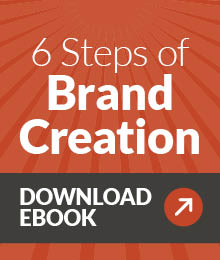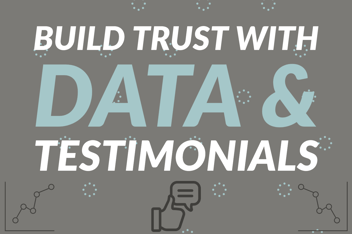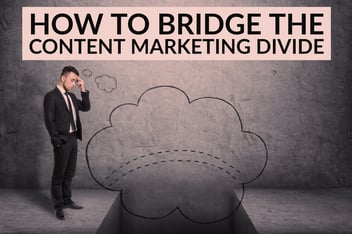5 Signs Your Health-Tech Company Needs A Rebrand

(This is a guest post from our colleague and collaborator Lena Cheng, MD, managing director at Best Friend Jack. We are thrilled to be able to share her marketing and branding insights for an industry we are both passionate about serving.)

By Lena Cheng, MD, Managing Director, Best Friend Jack
Prior to our work with a fast-growing health-tech client, company leadership had been bootstrapping marketing since day one. The company’s cofounders, with their flair for sharing—and frequently evolving—the company vision had developed a basic set of marketing assets with freelance design help. And they had engaged a local PR agency to issue the occasional press release.
This ad hoc approach is typical of many earlier-stage health-tech startups; however, after finding product-market fit and beginning to scale—in terms of revenue, capital, employees, and customers—many find that those stopgap marketing fixes begin to create as many issues as they solve. Core materials no longer sync up, internal teams no longer know what to prioritize, and the lack of consistent messaging or a clear brand story begin to confuse prospects and undermine company goals.
If any of these brand-related roadblocks sound familiar it may be time to consider rebranding.
5 signs your health-tech company may need a rebrand:
#1: Your company’s offerings have evolved.
While “move fast and break things” is not an ethos many companies in the health-tech space would aspire to, inevitably the first years are full of trial and error. Technologies evolve and improve, product lines change, and customer feedback may lead to pivots in unexpected directions. In the scramble for product-market fit, being nimble is a virtue. But it’s often the case that your brand hasn’t kept up.
Relevance checklist:
- Since your current brand was created, has your company significantly altered or changed its offerings or go-to-market strategy?
- Has your target audience, or what you know about their priorities, changed?
- Have you done any customer research to determine if your brand still aligns with your company’s vision?
#2: Your brand purpose isn’t clear.
A strong brand gives your target audience an immediate sense of why your company matters and how it can make customers’ lives easier or better. We often see health-tech companies leading with dense messaging around product features and technical capabilities, hoping to win over prospects with as much information as possible. Inevitably, this comes at the expense of a clear, compelling story about why your company exists in the first place.
Clarity checklist:
- Does your brand reflect a strategic narrative that can guide your communications for the next several years?
- In 10 seconds or less, can your employees and customers explain why your company matters?
- Do their explanations align with your company vision and goals?
- Do prospects immediately grasp the value of your offerings, or do they require repeated demos or explanations?
#3: Your brand isn’t relatable.
To stand apart from the crowd, strong brands must connect immediately on both an intuitive and emotional level. Prospects need to know that their most pressing needs are heard and understood before they hear your pitch. If your marketing focus is guided exclusively by hard metrics, such as website traffic and qualified leads, your brand may be suffering from a lack of relatability.
Relatability checklist:
- When prospects consider your offerings amidst numerous competing brands (think Google search, App store, or exhibit hall), do they gravitate to your brand?
- Does your brand allow them to feel that they are part of something bigger than simply a set of product features or transactions?
- Do prospects trust that your company has their best interests at heart?
#4: Your brand is undermining your credibility.
Many early-stage startups don’t have the luxury of a marketing team, let alone a clear brand and content strategy. Collateral is typically created ad hoc, with messaging, tone of voice, and overall look and feel varying considerably. At best, this inconsistency may cause confusion among potential customers; at worst, it can undermine trust in your company’s professionalism or the quality of your solutions and open the door for competitors.
Consistency checklist:
- Ask five employees what your key messages are—are their answers consistent?
- Do your communication platforms—website, social media, sales decks, PR boilerplates, ads—feature consistent messages and visual elements?
- Does the design quality of your pieces match the quality of your company?
#5: Your brand doesn’t stand out.
In an increasingly crowded health-tech marketplace, what should your brand be known for? What needs of your customers’ aren’t being fully served? The answer to these questions may turn out to be your “One Strong Differentiator,” that single attribute your brand can own by communicating it memorably, frequently, and consistently.
Differentiation checklist:
- Is your company clear on its one strong differentiator and how to communicate it?
- Does your brand occupy a unique space in the minds of your customers?
- If you pitched alongside 10 competitors, would your company be an obvious standout?
- If you exhibited at a trade show with 100+ booths, would attendees remember you?
In today’s crowded health-technology landscape, startup leaders should strive to cultivate their brand as the powerful asset it is. Those who fail to do so run the risk of having their companies overshadowed by competitors, or finding their product or service seen as a lower-quality, commodity offering.
Rebranding creates new opportunities for expanding your addressable markets, deepening customer loyalty, and guiding strategy by uniting employees and investors around a shared vision. Well timed and well executed, a rebrand can reinvigorate all aspects of your business—well beyond marketing—fueling growth and ensuring your hard-working company finds the success it deserves.
Thanks to Reed Perkins, cofounder of Best Friend Jack, who contributed content and copyediting.
_______
About Best Friend Jack
BFJ is a health-technology brand agency. We help growth-stage health-tech companies with strategic narrative, marketing and brand strategy, re-brands and brand refreshes, web design, content, and advertising. We also offer fractional Chief Marketing Officer services, building out marketing strategy, establishing KPIs, and managing employees and vendors.
Our clients are health-tech companies that have found product-market fit and are looking to establish a brand that serves as a foundation and cohesive narrative for growth. They're backed by Andreessen Horowitz, Khosla Ventures, Insight Partners, and other notable venture firms.
To learn more, get in touch at lena@bestfriendjack.com.
____________________________________________________________________________________________________________________
From Kristin Jones & Scott Muff: Thank you to Lena for sharing her insights on branding in the exciting health-tech field. We appreciate opportunities we have had to work alongside her and Best Friend Jack to serve clients with a wide range of marketing needs.













